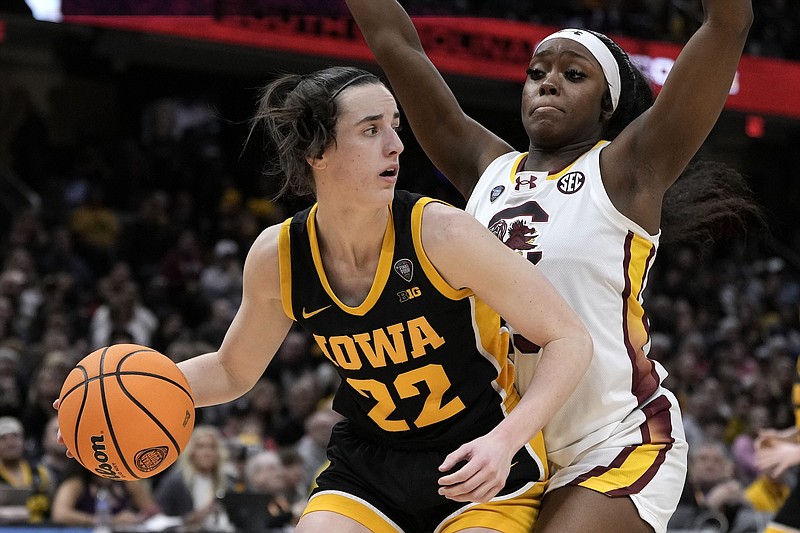It's hard to wrap your mind around the television ratings for Caitlin Clark and the Iowa Hawkeyes in the women's college basketball tournament. Her Elite Eight game against her rival Angel Reese and Louisiana State University was the highest-rated college basketball game in ESPN history. More than 12 million people tuned in, and the audience peaked at 16.1 million. Then, days later, Clark's team broke the record again. This time more than 14 million people watched, and the audience peaked at 17 million.
The ratings for Sunday night's final were even more impressive. An incredible 18.7 million people watched. The game was the most-watched basketball game in America — NCAA or NBA — since the 2019 men's NCAA final.
There is a lesson in those ratings, one that goes beyond Clark's generational talent. If she'd been a man, she'd have had one good year in college, perhaps enjoyed a decent tournament run, and then dashed off to the NBA. Fans wouldn't know they'd witnessed greatness.
That's the nature of the one-and-done men's college game. Transcendent talents don't stay, and teams with long-standing rosters don't have transcendent talents. And so you're left with a sport that both lacks stars and (relatedly) puts an inferior product on the court.
There are obvious economic reasons for the current reality. Young men have immediate access to huge professional salaries. The average NBA salary is more than $10 million. The WNBA average barely tops $100,000. It's financially irrational for a young man to stay in the NCAA when vast wealth awaits him for turning pro. But the cost to the NCAA and the NBA is real. If players stayed, college ball would benefit from having better play on the court, and pro ball would benefit from drafting players who are already household names and bring a fan base with them into the league.
With the advent of compensation for name, image and likeness, one wonders: Can the NBA and the NCAA re-create that Caitlin Clark magic, but for men? Let's have the players stay in college longer, compensate them fairly while they're in school, and then let them loose on the NBA after they've built their game and their name. The women have shown the way.
